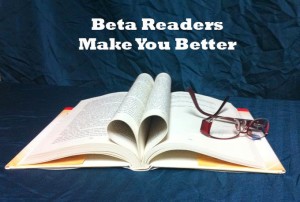 In this ever-expanding world of electronic and independent publishing, the number of authors has increased by the millions, and it is estimated that self-published authors have taken over 31% of the electronic marketplace. Thrilling, indeed. Along with this wonderful and slightly psychotic expansion came millions of “how to” books on self and indie publishing, each usually containing a “to-do” list to get your book off the blocks and past the finish line. I don’t agree with the items in all of the lists, but some elements consistently appear in them.
In this ever-expanding world of electronic and independent publishing, the number of authors has increased by the millions, and it is estimated that self-published authors have taken over 31% of the electronic marketplace. Thrilling, indeed. Along with this wonderful and slightly psychotic expansion came millions of “how to” books on self and indie publishing, each usually containing a “to-do” list to get your book off the blocks and past the finish line. I don’t agree with the items in all of the lists, but some elements consistently appear in them.
Many authors are fledgling authors and don’t know what it takes to become a professional author; having nothing to do with being self-published. I know many a professional self-published author. New authors know the catchwords and phrases and have a general idea of what they mean. One of the most commonly misunderstood is the BETA READER.
What is a beta reader? Simply put, beta readers are volunteers who provide feedback on your book. They are not paid for their work, they provide information that will help make your book better, and they help you gauge the appeal of your book to your intended audience.
How do they do that, you ask? Understanding that I come from a traditional authorship background, I have the following expectations of my beta readers.
1. Evaluate the manuscript for plot holes and continuity errors.
A plot hole is a gap or inconsistency in a storyline that creates a paradox in the story that cannot be reconciled with any explanation. They include such things as illogical or impossible events, and statements or events that contradict earlier events in the storyline.
A continuity error (also called time-scheme) is an inconsistency of the characteristics of people, plot, objects, and places seen by the reader over some period of time. They include such things as POV shifts (point of view shifts), head hopping, and ABPs (autonomous body parts), just to name a few. They aren’t only relevant to writing, but to several media and you see them in films all the time.
2. Assess the believability of the characters and their motivations.
If a character is a warm and loving father, he isn’t going to trample someone’s garden when he is angry—unless something happens in the story to take him beyond his warm and loving self. A beta reader will tell me if that something is clear, adequate, and believable motivation for my main character to become a jerk and trample someone’s garden.
3. Point out superfluous writing and unnecessary scenes.
Purple prose is the bane of every reader’s enjoyment. Excessive writing, particularly excessive use of metaphors and similes, is not only bothersome, it can shove the reader right out of a story. Some scenes are cute and fun, but are not necessary to advance the story. Excessive violence and gratuitous sex also need to be pointed out.
4. Comment on elements they feel are missing from the story or elements that weren’t fully developed.
If a main character is OCD, then a reader wants to “see” evidence of it. To say that a main character is so is not good enough.
5. Point out parts of the dialogue, narrative, or story that are confusing or hard to understand and provide feedback as to why they are confused or how to make it clearer.
When a lot of action takes place in a scene, and the participants aren’t clearly identified, certain actions become hard to follow and who is doing what becomes unclear. The same occurs in dialogue if it is not properly tagged, and sometimes readers will lose track of who is saying what. A beta reader is going to point these areas out because they will stumble on the writing when reading.
6. Point out things in the book they don’t like and provide feedback as to why they don’t like that particular element.
This is a catchall area to point out things that rub the reader the wrong way, oppose personal beliefs, or are too personal or emotional to read. Oft times, this will include a personal bias or a pet peeve. If several beta readers express dislike for the same aspects or scenes, I will take a closer look at them and re-evaluate their worth to the story.
7. Readability: Evaluate the flow and pace of the manuscript.
We, as authors, want our stories to be seamless; to flow like a river from chapter to chapter with purpose, and not to lull at any particular point. Further, we want our stories vivid. We want them to be imagination candy and visual candy for the mind’s eye. A beta reader will point out where a story lulls, where there is an inappropriate jump in flow, or skipped information that the reader needs to follow the story.
8. Comment on reactions to particular scenes so I can gauge “how” they read my manuscript.
I recently judged a manuscript for a professional writing association and could not tell by the end of the first thirty pages whether the main character was male or female. Irritated, I went to give a low score in the related area. Then I had a second thought: It was intentional. And it added an entirely new dynamic to the story. I gave the work a high score in the related area as I thought it to be a very creative and bold effort. Will the average reader make the same effort I did? I didn’t know and posed that question to the author in my critique. I want to know how my beta readers interpret a manuscript and whether or not they had to make an extra effort to read and interpret it (in any area).
Further, beta readers may point out community concerns that I may not have taken into consideration. I recently read someone’s idea for a story and became concerned. The story was set post world war and, given the atrocities of the war and the group of individuals affected, I thought the author might inadvertently offend readers. I voiced this concern to the author.
9. Provide specific feedback.
In addition to the above, I convey specific questions to beta readers in a query form (a list of questions I would like them to answer).
What don’t beta readers do? EDIT. Professional editors are well-educated and experienced, not only in the skills of writing, but in marketplace knowledge, demands, and the publishing industry as a whole—including attitudes and trends. Beta readers do not provide marketplace information, publishing information, detailed advice on character or story arcs, advice on specialty writing skills (e.g., synesthesia), or provide global notes. Although beta readers are not editors, (content/development, line, or proofreaders), a beta reader can help polish a manuscript by pointing out typos, grammatical errors, and errors in sentence structure.
When I look for a beta reader, I want to know that they have a clear understanding of the above and have an interest in making my story better. They must be constructive in criticism and be willing to read my manuscript line by line.
It is important to know what information you are seeking before you choose beta readers. I use very few authors as beta readers because I want the opinions of readers, not writers. Authors will give me terrific advice on matters of authorship but, by virtue of their profession, they aren’t going to give me the “everymanness” input that a beta reader will.
Where do I find beta readers? From all walks of life. Friends, co-workers in RL work, youth I mentor, friends of friends; male and female; and they range in age from thirteen to my age (older than dirt). I want the opinions of as many readers as I can get. I have a core group of seventeen beta readers. Do they all read the same manuscripts? No. Let’s be practical. A beta reader who is a romance fan isn’t going to want to read one of my sci-fi works. Each beta reader has different skills and offers a different perspective, and I choose those who I believe will yield the best information for a particular manuscript.
 Of greatest import, trust. All of my beta readers sign a confidentiality agreement and I trust all of my beta readers to give me honest opinions, even if they know I won’t like them. I also want them to know if they give me constructive but unpleasant input, it won’t affect our relationship. This is the preamble to my beta query form:
Of greatest import, trust. All of my beta readers sign a confidentiality agreement and I trust all of my beta readers to give me honest opinions, even if they know I won’t like them. I also want them to know if they give me constructive but unpleasant input, it won’t affect our relationship. This is the preamble to my beta query form:
A BETA reader’s job is to read and enjoy (or not) a story and give the author honest comments about it. BETA readers are not required to edit or perfect a story, nor are they required to review the story after it is published. In your capacity as a BETA reader, it is important that your opinions are frank and honest without respect to the author, the author’s endeavors, or the author’s plans with respect to the story. On a more personal note, as an author, it is important to me that you are constructively critical and forthright in your opinions. Nothing you say will change the way we interact. For information purposes only, the sequel to Omorphi will _______. (Gotcha!)
In addition to standard beta readers, I look for specialty beta readers; people who have expertise in a particular area such as accents, foreign language, sports, etc. I don’t want to write about running hurdles without knowing about running hurdles. I perform the appropriate research, but I still want someone in the field to look over my work.
What are the advantages of being a beta reader? Check out Jami Gold’s “Why I Love Beta Reading.” Anne R. Allen’s post “What is a Beta Reader” is also a great post. The value of good beta readers is immeasurable. I worship them.
Check out what Timmy has to say about being one of my beta readers right here. See you next month on Wednesday, December 17th!
I’m all about the Bass, No Treble, Megan Trainer
Check out Cody’s Blog here. Like Cody on Facebook, find Cody on Goodreads, on Twitter @CodyKAuthor, on Pinterest, and read Cody’s free serial story, Fairy.
Available from: Harmony Ink Press
Όμορφη. Ómorphi. Greek. Meaning pretty
Pretty. adj. /pritē/ Pleasing by delicacy or grace
~*~
High school senior Michael Sattler leads a charmed life. He’s a star athlete, has great friends, and parents who love him just the way he is. What’s missing from his life is a boyfriend. That’s a problem because he’s out only to his parents and best friend. When Michael accidentally bumps into Christy Castle at school, his life changes in ways he never imagined. Christy is Michael’s dream guy: smart, pretty, and sexy. But nothing could have prepared Michael for what being Christy’s boyfriend would entail.
Christy needs to heal after years of abuse and knows he needs help to do it. After the death of his notorious father, he leaves his native Greece and settles in upstate New York. Alone, afraid, and left without a voice, Christy hides the myriad scars of his abuse. He desperately wants to be loved and when he meets Michael, he dares to hope that day has arrived. When one of Michael’s team-mates becomes an enemy and an abuser from Christy’s past seeks to return him to a life of slavery, only Michael and Christy’s combined strength and unwavering determination can save them from the violence that threatens to destroy their future together. Read an excerpt of Omorphi
 Available from: Harmony Ink Press
Available from: Harmony Ink Press
Caleb had one mission in life.
To keep his boyfriend safe.
They met at ten, kissed at twelve, and were madly in love by eighteen. Caleb Deering is the captain of the swim team and the hottest senior in school. He comes from a loving home with a kind father and a caring, but strict, mother who is battling breast cancer. Nico Caro is small and beautiful, and has a father who rules with an iron fist—literally. One morning Caleb forgets himself, and he pecks Nico on the lips at school. A teacher sees them and tattles to the Headmaster. The accidental outing at school might be the least of their problems, because the ball set in motion by the school’s calls to their parents could get Nico killed. In the face of that very real danger, Caleb knows he has only one mission in life: to keep Nico safe. Read an excerpt of Safe.




Great post!! Such good information for anyone who is curious about what exactly beta readers do. And, really interesting to have the detailed viewpoint of a specific author…i.e., what YOU want from your betas. Very cool.
Thank you, Jules. I hope it clears up information for some. I’m fairly particular about what I’m looking for and I don’t feel that it’s fair to impose on beta readers if I haven’t been specific. It’s only becomes a burdensome read for them.
What a wonderful, informative post, Cody! I’ve done a couple of beta reading for an author and I love it. I pretty good about 4, 6, 8, and 9. Im a horrible proofreader so I leave that to the experts. Thanks!
Thank you, Kari. I’m glad you now know for certain that you don’t have to proof read!
Great post. I’m going to print it out and keep it as a reference. I have had the privilege to Beta read on 2 books. Since I’m new at it this post is very helpful. Hugs
Glad you enjoyed it and it helped you, Denise. These standards have helped me a great deal over the years and I have terrific beta readers.
I’ve always thought it would be fun to be a beta reader, but, in reality, I know I’d be horrible because I can’t always articulate why something works or doesn’t work. I wouldn’t be any help at all.
Hi Barbara. Thanks for stopping by and commenting. I believe you would make an good beta reader merely because you care to be good at the feedback you give to an author. One of the best pieces of advice I ever received was: “Don’t get it right, get it written.” Simply state that it doesn’t flow because it makes you feel X. Confused, angry, sad, incomplete, etc. It’s up to the author to come back to you and work with you on why you may feel that way.
Excellent post, Cody. My compliments. So few authors actually specify exactly what it is that is expected. This is simply brilliant.
Thanks so much, Anna! I’m glad you enjoyed it!
Thanks for the shout out to my blog! I loved the list of expectations here too.
Some writers prefer to use non-writer beta readers, and depending on the reader, they might not be able to provide all that information. The ability to answer questions like that is why I prefer writer-beta-readers, but as you said, I still don’t expect them to EDIT. Feedback, not editing.
You’re more than welcome, Jami! Great post! Absolutely agree. Feedback is key,
I already knew most of it, but it’s a great list to verify that I’m doing the right thing right now, as I am beta reading for Kimi. Don’t want to mess that up.
X Marieke
I’m glad the information reaffirmed what you already knew, Marieke. And excited to hear that you’re betaing!
I love this post… As a beta reader for several authors I found this super helpful and with return to it before my next beta read… THANK YOU!!!
Plus… this post introduced me to your books and I’m so in love with Omorphi ( and Safe ) I can’t even STAND IT!
I’m so glad you found it helpful, Jessica. The function of beta readers is often misunderstood and I’m glad this provided some clarity for you. And, whoa! I’m even happier you you found my books! Thank you so much from dropping by and commenting!
Cody, Thank you for enlightening me about the Beta. I am so interested. How do I sign up to become a Beta?
Luke Lander